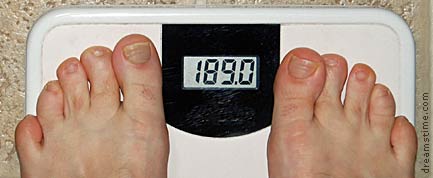Is the 17 Day Diet Just Another Weight-Loss Gimmick?

First it was the Atkins and South Beach diets, and then it was the Dukan Diet. But now, "The 17 Day Diet" (Free Press, 2011), created by California family practice physician Dr. Michael Moreno, is making the rounds as the newest diet trend.
The diet has four stages (similar to the Dukan Diet), where dieters vary their fruit, vegetable, protein and carbohydrate intakes to minimize calories. Each stage is 17 days because that is when the body begins to treat the diet as a dietary habit and metabolism slows, Moreno told ABC News' Good Morning America. But at least one diet expert disagrees with the premise of a 17-day dietary cycle.
"There's nothing magical about 17 days," said David Levitsky, professor of psychology and nutritional sciences at Cornell University in New York. "Weight changes for a patient depend on their individual rate of weight loss, age, body size — many of these things. There's no single time variable; that's totally ridiculous."
Other aspects of the diet are more traditional. For example, dieters are encouraged to substitute healthier ingredients for their less-healthy counterparts, such as fruit for sugar and mustard instead of mayonnaise, according to “Good Morning America.” Dieters can't eat fruit and certain carbohydrates after 2 p.m., but they are encouraged to eat Greek yogurt and are allowed a cookie for breakfast. The diet also requires walking 17 minutes a day.
"The food choices were easy and with all the weight loss, it motivated me to try another 17 days," said Rachel Wilcox, a 38-year-old mother who is on the diet, on “Good Morning America.” "I lost 36 pounds in four months."
But is the 17 Day Diet just a fad diet with only temporary weight loss capabilities?
Yes and no, said Levitsky.
Get the world’s most fascinating discoveries delivered straight to your inbox.
The diet's promotion of healthy eating and healthy exchanges is a proven way to help a person lose weight, Levitsky said.
"Reducing fat is a big savings right there," Levitsky told MyHealthNewsDaily. "It's in the category of things any dietitian will tell you."
But other aspects, like the 17-day phases, are "just gimmicks," he said.
The no-fruit-after-2 p.m. rule also doesn't make any difference in weight loss, he said. Despite what many people may believe, research shows that it doesn't matter what time of day a person eats — it only matters how many calories the person is consuming, Levitsky said.
"There have been a number of diets through the years that have worked on timing as their gimmick, and that's what it is, it’s a gimmick to get you to believe it," he said. "And of course the more gimmicks there are, it’s a placebo effect. So people will probably adhere to it a little bit better initially, but they’ll all fail ultimately."
Pass it on: Some aspects of the 17 Day Diet make sense, like swapping unhealthy ingredients for healthy ones, but other aspects are just gimmicks.
Follow MyHealthNewsDaily staff writer Amanda Chan on Twitter @AmandaLChan.
This story was provided by MyHealthNewsDaily, a sister site to LiveScience.
 Live Science Plus
Live Science Plus






